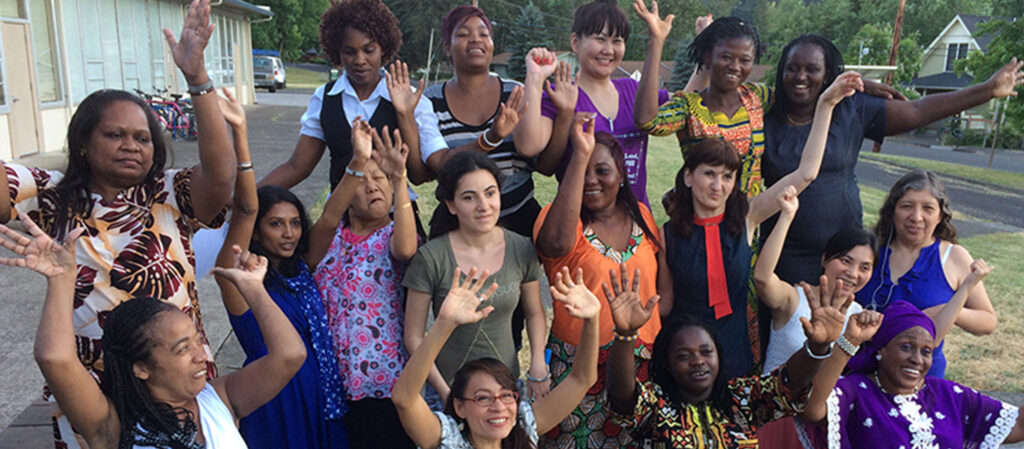In Nepal, and throughout the world, people with disabilities have been disproportionately impacted by the COVID-19 pandemic. Lack of access to accurate information about health and safety protocols, emergency supplies, quarantine locations, medical facilities, and support systems has put people with disabilities in a highly vulnerable situation. To respond to this global challenge, people with disabilities are leading the way.
MIUSA recently completed a 12-month project, Mobilizing Disability Rights Leaders to Promote Inclusive Responses to the COVID-19 Pandemic in Nepal. Led by local Nepali partners, the project included a rapid assessment, a Peer Support training program, “Community of Practice” webinars, as well as an innovative media campaign.
Our local partners
Working with our local partners we were able to reach people with diverse disabilities in both urban and harder-to-reach, rural remote areas in the Kaski District of Nepal. Our main partner was the Independent Living Center – Pokhara (CIL-P), and other partners included – Disabled Women’s Empowerment Center (DWEC), a disabled women-led nongovernmental organization based in Kaski, and KOSHISH, a national self-help organization focused on rights of people with psychosocial disabilities.
Impacts of the Project
A major success of the project was establishing a Peer Support Program and training a cohort of 30 people with disabilities as “Peer Support Motivators”. After the training, participants were able to take practical action by sharing information on COVID-19 (both virtually and physically) to other people with disabilities in their local areas. They also linked and successfully coordinated with local government and non-governmental agencies in their local communities on their actions. As a result, Peer Support group members reported increased skills in leadership, coordination, advocacy, and networking. One member with a physical disability commented on the sense of empowerment she developed through participation in the project:
“Now I can feel and realize that we people with disabilities also can conduct the activities in the community. I used to think that it is not possible because people would not attend the program, but now I have changed my mind and I realized that we can do it.”
Our local partner CIL-Pokhara reflected on the impact of the Peer Support program:
“The peer support group members are the change makers in the community. When the project is over, their skills and knowledge and understanding on disability and COVID will continue to be a great asset for them and their role in the community.”
The Peer Support group members developed a sense of ownership for their activities and new network, and continue to engage with one another beyond the project.
Media Advocacy Campaign
Our partners also produced 24 COVID-19 informational and communication materials through the project, such as posters, flyers, videos, booklets, and radio announcements. Media materials were made available in diverse accessible formats (including sign language, audio, visual, pictorial/graphical form, electronic, and easy-to-read) and in local languages.
Explore media materials created through the project.
Building Community Partnerships
Other key successes of the project were educating the broader community on disability issues in the context of COVID-19 and the relationships built with the local government authorities, media professionals, health workers, and other service providers.
During one workshop, government officials confessed that they had not been aware of some of the issues, and for many it was their first time learning directly from people with disabilities. As a result of this interaction, participating government officials made commitments to invite people with disabilities to participate in future decision making platforms and governmental meetings.
Through conducting these activities, community stakeholders not only increased their understanding on disability rights issues, but were able to identify opportunities to take coordinated action.
Beyond the Project
This project created a solid platform for people with disabilities to mobilize and advocate for their issues to local government authorities. Our partners emphasized the need for continuous advocacy, more capacity building and disability rights orientation trainings, as well as stronger collaboration between community stakeholders to ensure meaningful participation of people with disabilities in COVID-19 response and recovery efforts, as well as any future public health emergencies. Addressing these challenges requires commitment and creativity, especially from people with disabilities themselves, and continuous engagement of people with disabilities in all planning and decision making processes.
This project was made possible by the generous support of the American People through the United States Agency for International Development (USAID).





